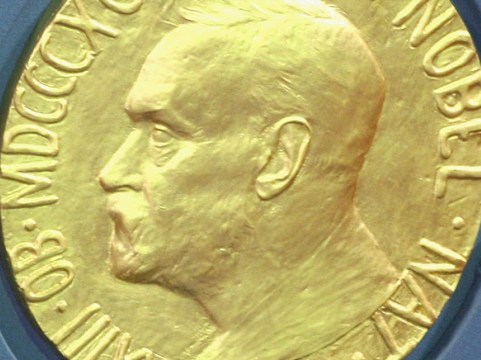A Nobel prize for the Charles Barkley of economics

By Bloomberg
I managed to call this year's Economics Nobel correctly. Actually, it wasn't difficult. Jean Tirole is a name uttered so frequently in the field that the most surprising thing about his Nobel win today was that he hadn't won the prize already. That's how the Sveriges Riksbank Prize in Economic Sciences in Memory of Alfred Nobel works -- it's usually a lifetime achievement award rather than an award for a specific innovation or discovery.
That fact made the committee's decision particularly hard this year, because Tirole is an economics polymath. Bill Walton once said of Charles Barkley: "[He doesn't] really play a position. He plays everything. He plays basketball." Tirole is kind of like the Charles Barkley of economics, only without the politically incorrect commentary.
If you could summarize Tirole's area of research in a single sentence, it would be about corporations. One might think that corporations are one of the easiest, most natural things for economists to study, but one would be wrong -- in fact, many economists wonder why corporations even exist. A lot of macroeconomic models, for instance, assume that companies work like Chinese peasants in the Great Leap Forward -- a million identical little producers, all making steel in their backyards.
Only a few economists have both the mathematical chops and the sheer mental doggedness to try to slice through the jungle that is the modern U.S. corporation, but Tirole has both of these. The machete he wields is game theory. Game theory is very different from the typical econ theory you hear about -- Adam Smith's "invisible hand" is nowhere to be found. Instead, game theory deals with strategic interactions, with smart people trying to bluster, wheedle, threaten and team up with each other.
That sounds a lot like working in a corporation. And it also sounds a lot like the way corporations interact with each other, and with the government. The work the Nobel committee finally decided to cite in Tirole's award was about the way that government should regulate firms in different kinds of competitive environments. If you have a monopoly, that requires different regulation from an oligopoly, which in turn is different from a perfectly competitive situation. Things such as mergers and acquisitions require their own sort of regulation, as do cartels. Adam Smith warned darkly about cartels but it wasn't until the advent of game theory that we understood something about how to deal with them.
Notice that Tirole's work on regulation defies the typical stereotype of what economists do. Many people think that economics is all about providing justifications for free markets, or assuming that businesses always do what's best for their shareholders. Tirole, instead, takes a more practical approach, dealing with businesses as they are, not as they should be, and recommending government intervention when such intervention could improve the situation.
Personally, I'm familiar with a different side of Tirole's oeuvre -- his work on finance. Tirole has written a book on the theory of corporate finance (called, not surprisingly, "The Theory of Corporate Finance"). It deals with all the aspects of finance theory that don't get a lot of attention in the press -- hostile takeovers, for example, or corporations' bias toward financing themselves with debt. The basic idea is that to understand how corporations finance themselves, you have to understand the strategic interactions among managers, shareholders, bondholders, customers, suppliers, employees, the government and others. If the Efficient Market Hypothesis -- the idea that markets rapidly assimilate all information, making it hard for investors to profit -- makes an appearance in Tirole's theory, it is only as a very bit player.
But rest assured, Tirole has also taken on the topic of asset markets and efficiency. In fact, Tirole has shown not one, but at least two ways that efficiency could fail and bubbles could take over. The first way is if traders think only in the short term and ignore the long term -- not an unrealistic idea, for those of us who have met some real-world traders. The second way results from trading between older and younger generations. Tirole has also done a lot of theory about financial crises and liquidity, the things that demonstrated their importance in 2008.
One point to note about Tirole's work is that it's mostly theoretical -- and by "mostly," I mean everything I've ever read or seen. Another common knock against economists is that they focus too much on deduction and theory, imagining how people should interact without going out and seeing how they do interact. But that criticism doesn't always hit the mark -- it's perfectly natural to have a division of labor where some people make the theories and others test them. And many of Tirole's theories are perfectly testable.
There is a lot more to Tirole's work than what I've managed to describe here, but that would be true even if I wrote three times as much as I have. When you're dealing with the Charles Barkley of economics, sometimes all you can do is sit back and admire the whole body of work.
Here we are to serve you with news right now. It does not cost much, but worth your attention.
Choose to support open, independent, quality journalism and subscribe on a monthly basis.
By subscribing to our online newspaper, you can have full digital access to all news, analysis, and much more.
You can also follow AzerNEWS on Twitter @AzerNewsAz or Facebook @AzerNewsNewspaper
Thank you!
